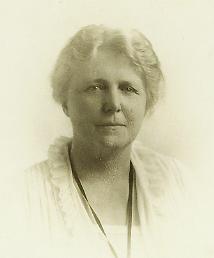
When researching a prominent woman in history, often our first inclination is to look to her public accomplishments. We want to know how this woman enacted social change, because after all, that is what we as individuals are most affected by. But when we only focus on her social or political work, we are completely missing another side of the story.
I was asked to do research on Helen Palmer Dawes, wife of Rufus Dawes and sister-in-law to Charles and Caro Dawes, for the Evanston Women’s History Project. I went to the Special Collections Library at Northwestern University, expecting to find some interesting quotes or supporting information. Indeed I found what I was looking for; Mrs. Dawes, publicly, was an incredibly outspoken woman. She worked tirelessly for issues of food conservation and substitution during WWI, was president of the Woman’s Club of Evanston during their first two years in their new clubhouse, was the first female library board member in Evanston, and was Chair of the Social Committee at the Century of Progress – and the list goes on.
Paging through her diary, however, I found a much different story. It was about her children and family life, chronicled in detail. I learned about first words and first steps, broken arms and lost teeth, sports and school assignments. Turning to her diary for the years that she would have started her Woman’s Club and Library positions, I found a large gap between April 6, 1913 and Mar 29, 1914. On the left side of the book were two hastily pasted newspaper articles about these positions. The right side began: “The newspaper clippings on the opposite page are intended as a lame excuse for neglecting to chronicle the doings of the Dawes children in this book. I have been doing too many things that have made me put off writing. Now so many happy times and funny sayings will be forgotten, all because mother went to the Club.”
Mrs. Dawes felt the drive and the passion to enact social change, but like so many women both before and after her, she struggled with the delicate balance of being an activist and being a mother. This is not an issue new to women, brought on by the women’s movement of the 1970s, but instead something that has affected women for decades. If we had to ask Mrs. Dawes today, would she want us to remember her for her public accomplishments, or instead the accomplishments of her children?
What you read about in public documents only provides a snapshot of what these women did; it is not all of whom they were. Learning about her family life, her children, even her own childhood demonstrates that these women, too, were human beings with the same joys and struggles as non-activists. As women’s history month comes to a close, remember to always reflect on the fact that there is always another story to tell.
Erin Hvizdak is an intern at the Evanston History Center and volunteer in the Frances Willard House Museum archives. She is currently pursuing her MA in Women’s Studies and Gender Studies at Loyola University Chicago.

Pingback: Happy International Women’s Day | The Evanston Community Kitchen